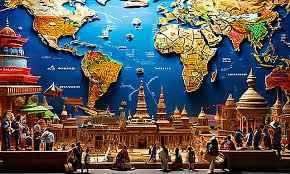Cultural definitions of identity vary widely across different societies, influenced by a range of factors including history, geography, and social norms. Here are some key elements that shape identity in different cultures:
1. Language
Language is a primary means of communication and a crucial component of cultural identity. It reflects and shapes our thoughts, values, and perceptions. In many cultures, language is closely tied to a sense of belonging and community.
2. Traditions and Customs
Traditions, rituals, and customs play a significant role in defining identity. These practices often have historical significance and are passed down through generations, helping to maintain a sense of continuity and connection to the past.
3. Values and Beliefs
Cultural values and belief systems, including religious and moral principles, are foundational to a person’s identity. These values dictate social norms and behaviors, influencing how individuals see themselves and their place in the world.

4. Social Structures
Family, community, and social hierarchies are crucial in shaping identity. Different cultures place varying degrees of importance on family ties, social status, and community involvement.
5. History and Heritage
A shared history, including historical events, legends, and collective memories, contributes to a sense of identity. This can include everything from national history to local folklore.
6. Art and Literature
Cultural expressions through art, music, literature, and other forms of creativity reflect and shape identity. They offer insights into the collective consciousness and values of a society.

7. Geography and Environment
The physical environment and geographical location of a culture can influence its identity. For example, island cultures might have different identities compared to continental cultures, shaped by their interaction with the natural world.
Examples of Cultural Identity Definitions
-
Western Cultures: Often emphasize individualism, where personal achievements and autonomy are key aspects of identity.
-
Eastern Cultures: Tend to emphasize collectivism, where group harmony, family, and community are paramount in defining identity.
-
Indigenous Cultures: Frequently define identity in relation to the land, ancestors, and traditional ecological knowledge, emphasizing a deep connection to nature and community.
Intersectionality
Identity is multifaceted and can intersect with various factors such as gender, race, ethnicity, socioeconomic status, and more. This intersectionality means that an individual’s identity is shaped by multiple, overlapping social categories, each influencing their experience and self-conception.
Understanding identity within different cultural contexts requires a nuanced approach, recognizing the unique combination of elements that define each culture's sense of self and community.
AfriPrime App link: FREE to download...


